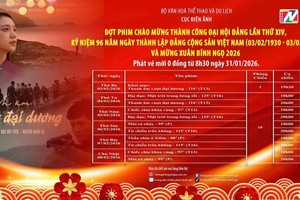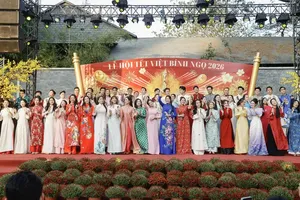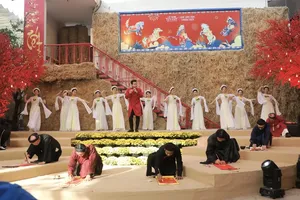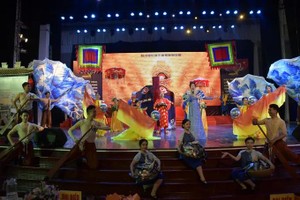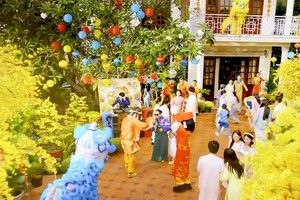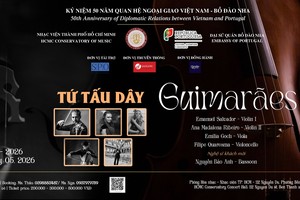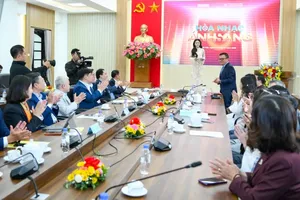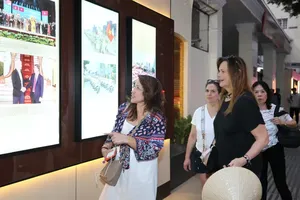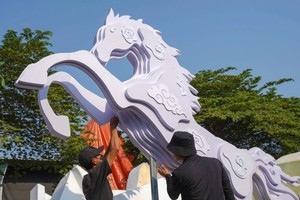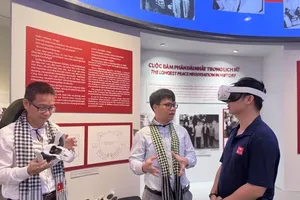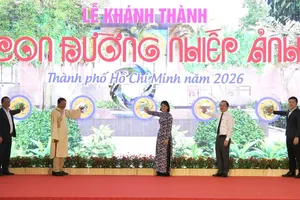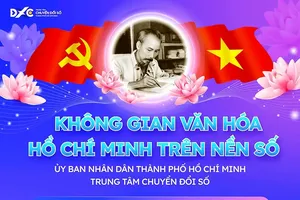Vietnam, a nation steeped in rich cultural heritage and propelled by ambitious development goals, is actively shaping a dynamic and forward-looking national image.

With its growing presence in global affairs, Vietnam is embracing a strategic approach to highlight its identity as a country that is stable, progressive, innovative, and culturally vibrant. This effort reflects the nation’s commitment to engaging the international community with confidence and purpose—sharing its story and values with pride.
Telling stories with emotion
At the recent forum tittled 'Positioning Vietnam: National Image Promotion in the New Era' held in Hanoi, experts emphasized the urgency of a modern and long-term communication strategy for the nation.
Director Pham Anh Tuan of the Department of Grassroots Information and External Communication under the Ministry of Culture, Sports and Tourism said that Vietnam’s international image still falls short of reflecting its actual achievements; therefore, the country needs a systematic, long-term strategy to affirm its rightful position on the world map.
As part of a draft National Image Promotion Strategy nearing completion, Vietnam is outlining bold aspirations to elevate its global presence. By 2030, the country aims to join the ranks of the top 40 nations with the most positive coverage in global media, welcome 35 million international tourists annually, and increase the contribution of cultural industries to 7–8 percent of its GDP. To achieve this, all provinces and cities are expected to unify their international outreach efforts under a cohesive national vision.
Yet experts caution that metrics alone won't secure success. Former Ambassador Luong Thanh Nghi emphasized the need for a well-defined and sustained message, steered by a dedicated lead strategist. He also underscored the power of authenticity: “Influencers and KOLs from abroad play a vital role—narratives shared by locals often resonate more deeply than those we craft ourselves.”
Meanwhile, lecturer Do Anh Duc of Vietnam National University in Hanoi noted the essential role of public participation saying that no strategy thrives without public support. Citizens are Vietnam’s truest storytellers from the Ao dai to family meals, it’s the everyday moments that create a rich and compelling tapestry. That’s what captures the world’s attention.
Positioning Vietnam through culture
Culture plays a significant role in shaping a nation's image, and it is viewed as a form of soft power - a distinctive and sustainable strength for Vietnam. Associate Professor Dr. Bui Hoai Son remarked that Vietnam possesses vast potential in cultural soft power. However, without a comprehensive strategy, adequate funding, and collaboration across various sectors, it will be challenging to establish a global presence.
He referenced successful examples including China’s Confucius Institutes, South Korea’s Hallyu wave, and Japan’s “Cool Japan” initiative. All of which prioritize culture as a crucial element in national development, supported by strategic investments in content, media, and education. The national image transcends mere communication—it encompasses how we live, evolve, and inspire others.
From a global viewpoint, Director Choi Seung Jin of the Korean Cultural Center in Vietnam suggested that Vietnam should share profound cultural narratives using contemporary methods through the content industry. Communication should focus on long-term significance rather than just short-term effects. In today’s digital landscape, multimedia platforms serve as powerful means to connect the world with a vibrant and innovative Vietnam.
Tourism is poised to gain directly from a strong national brand. Secretary General of the Vietnam Tourism Association Vu Quoc Tri stated that national branding is a crucial foundation for tourism promotion. He said that if Vietnam’s image is attractive, emotional, and persuasive, it will draw international tourists. Every citizen and visitor acts as a national brand ambassador. Their experiences, satisfaction, and stories represent the most genuine and effective communication. Tourism can measure this through annual visitor growth something that digital platforms cannot fully capture.


